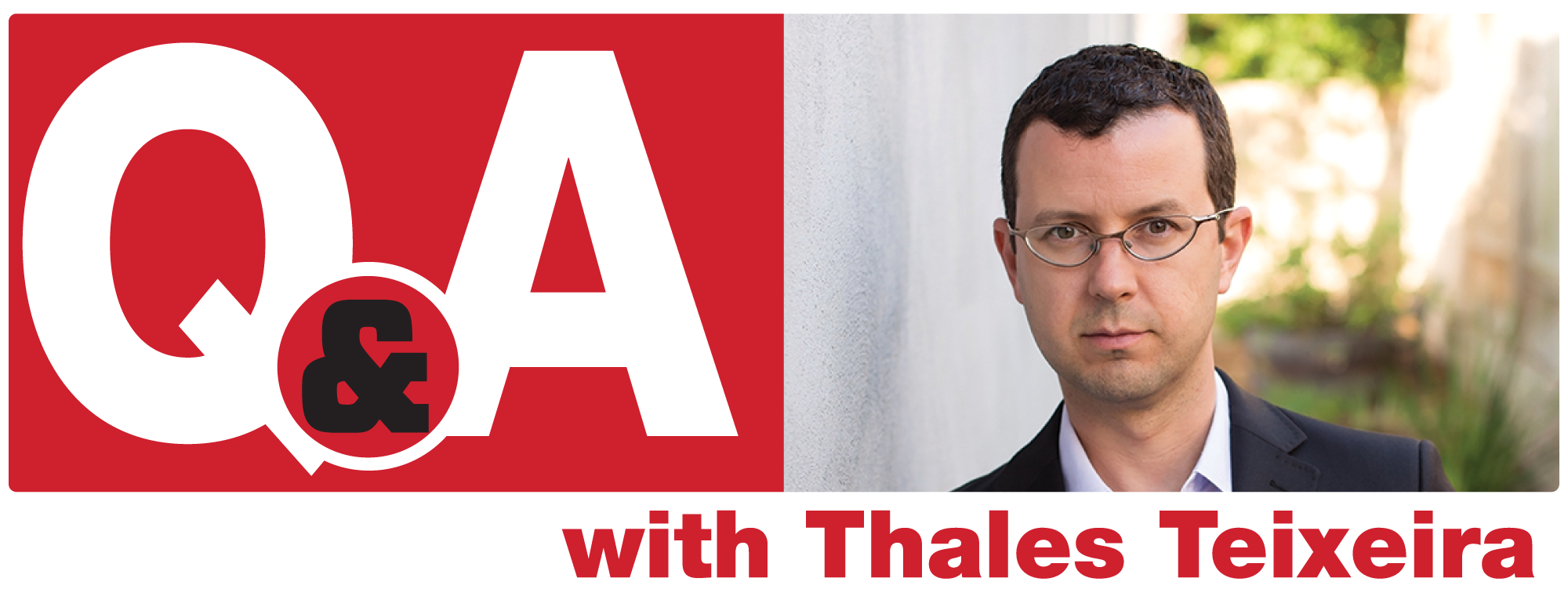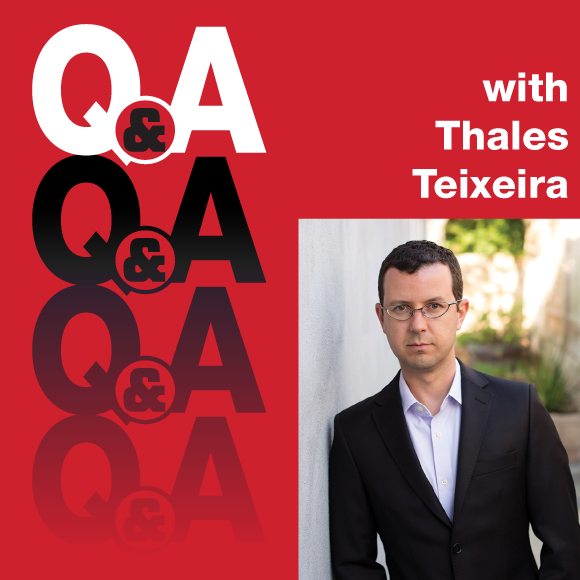
Best selling author on the future of business
Thales Teixeira has spent a considerable amount of time dissecting the ins and outs of the business world. In his recent book, “Unlocking the Customer Value Chain,” he details the disruption in traditional models of business. As a former Lumry Family Associate Professor at Harvard Business School, he has consulted, advised or educated top executives of more than 15 of the Fortune 100 companies, oftentimes digging deeply into what makes today’s buyers and brands tick. Today, as co-founder of the digital disruption consultancy Decoupling.co., he continues to take his research further into the enthralling market dynamic. We sat down with Teixeira to get his thoughts on where business is headed:
How are you staying connected to your clients during the pandemic?
Almost exclusively on Zoom. I do keynote speeches, workshops and consulting/advisory work, all via Zoom.
What feedback are you getting from people about their businesses now, and in the near future?
The pandemic seems to have created a “k-shape recovery” for households as well as for companies. On the household side, professionals who managed to stay home and keep their jobs are doing well. Those who lost their jobs or live in rentals in major city centers are more likely to be in the downward sloping portion of the “k.”
The same seems to be holding true for my clients, albeit with different sets of separating circumstances. Some companies who did their homework on digital innovations (both tech and business models) are thriving. Also some companies benefited from the voracious online purchases of durable goods. Wayfair’s stock, to name one case, has increased 1200% from the March bottom. Digital payments startups have also thrived. On the other hand, restaurants, movie theaters, clothing and apparel have suffered dramatically. What I tell all my clients is this; differently from past recessions-2008 financial crisis or dot-com bubble-this time, regardless of what business you are in, it is not your fault what has happened to your business. Your failures to date are not a consequence of your decisions. This case, it is as if God indeed threw dice on which firms flew, which foundered and which failed. So don’t blame (or credit) yourself too much. But in the future, any failure will be a consequence of inappropriate decisions that you take going forward.
What business practices do you hope will NOT return post-pandemic?
The major standard business practice that I wish will be a thing of the past is the overwhelming need to travel to do business in person. I used to travel non-stop to give keynote speeches in conferences, executive workshops, small business meetings and to perform routine executive advisory works. Much of this, upwards of 65% by my calculations, was unnecessary but was the status quo. I hope that this wasteful time and monetary cost of doing business will never return. Everybody will benefit from less business travel.
What things are you doing now that you want to continue in the future?
I have done multiple executive workshops for my clients at Decoupling.co. I conduct interactive Harvard case discussions, lectures and hands-on activities online. My clients engage with me and can offer these events to many more of their employees around the globe. Online teaching and management training has democratized knowledge, even though it loses some of the non-verbal face-to-face benefits of in-person teaching.
How do you feel about your company’s commitment to marketing in tough times?
Marketing can be seen as both an expense-a cost of doing business-as well as an investment-a return-generating influx of cash. The former, if not spent, will tank current sales; the latter will have an impact in future sales. The challenge that companies face is never knowing the proportion of which has a short, versus long-term, impact. To add on top of that, as in any shouting match, audiences can’t understand any of the shouters. The same happens for brands and their customers in the marketspace. So, when competitors spend less to communicate, that is when advertising (and other marketing activities) has a highest bang-for-the-buck. In sum, I advocate for communicating more with clients when others reduce their efforts.
What advice do you have about engaging in the new landscape?
The internet has drastically reduced the barriers for communication. Twitter is essentially the result of a near-zero cost barrier to express yourself. All people, companies and organizations now have a firehose of varying quality content to blast online. You should ask if you have anything to add in this tidal wave of (mis) information. Oftentimes, distinguishing yourself by communicating with clients and prospects using professionally designed, high-quality content, in a less competitive medium-say print-can get the message of distinction across much better than the low-effort, low-cost overcrowded mass media which is the internet today.
This Q & A appears in the new January/February 2021 issue of Connect magazine published by NextPage, which can be found online here. If you would like a free print subscription to Connect, please click here.

